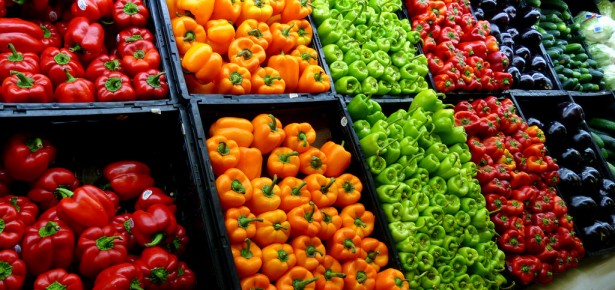
How we name and narrate food matters. To see what I mean, consider the different namings/narrations of a plant as either a flower, a tomato plant, or a weed. Flowers are plants to behold and admire, tomato plants we nurture and protect (so we can eventually enjoy their delectable fruit), and weeds we work to destroy and eradicate. One kind of thing—a plant—yet radically different ways of relating to it.
It is fairly clear that for people living in today’s dominant, increasingly global food system, food signifies primarily as a commodity that producers and distributors work very hard to deliver as copiously, cheaply, and conveniently as possible. Eaters have, in many instances, been reduced to being the shoppers of food. What effect does a shopper’s relation to food as a commodity have for the ways people then relate to places, creatures, and fellow eaters? Will fields, animals, farmworkers, and consumers be reduced to units of production or measures of profitability?
In this book I argue for a radically different characterization of food, one that doesn’t reduce to food as a commodity but, instead, understands it as a sacred gift given for the purposes of nurture, sharing, and celebration. Stated somewhat dramatically, food is God’s love made delicious. Admittedly, this is a strange way of speaking, but what it does is open a theo-logic and a theo-grammar in which ways of speaking open into practical ways of being that honor places and creatures as lives worthy of care and respect.
The ethics of eating has often been confined to arguments for and against vegetarianism or veganism, or it has centered on pressing matters of hunger and food insecurity around the globe. This books expands the conversation to include issues like the ethics of agricultural practice, the meanings of life and death that come into immediate view the moment an eater takes a bite, the prospects of hospitality and reconciliation in a polarized world, the importance of gratitude in the cultivation of a praiseworthy life, and the prospect of a peaceable and mutually nurturing forms of dwelling in an Anthropocene context. This book argues that if people can eat better, meaning by “better” something like a way of eating that honors and cares for the many sources of life—soils, plants, animals, farmers, cooks—that feed us, then the prospect of a more fertile and fecund world, and the hope of healthy and reconciled communities might come into view.
Latest Comments
Have your say!